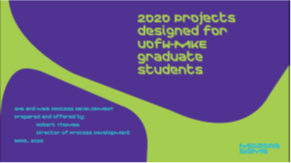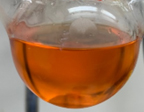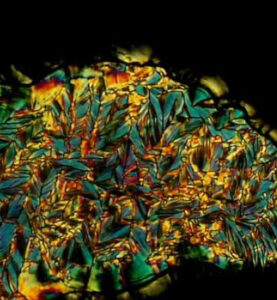Since 2020, the Milwaukee Institute for Drug Discovery (MIDD) has supported an academic-industry collaboration between the University of Wisconsin-Milwaukee’s (UWM) Chemistry and Biochemistry Department and MilliporeSigma called Graduate Students Working with Professional (GSWP).
MilliporeSigma is a Life Science business of Merck KGaA, Darmstadt, Germany, which operates as MilliporeSigma in the U.S. and Canada, has more than 28,000 employees, and more than 55 total manufacturing and testing sites worldwide, with a portfolio of more than 300,000 products focused on scientific discovery, biomanufacturing and testing services. Merck KGaA, Darmstadt, Germany, a leading science and technology company, operates across healthcare, life science and electronics.
The academic-industry program (GSWP) was founded by Dr. Thomas and Paul Griffin of MilliporeSigma, and Dr. Arnold (UWM and MIDD Director). The collaboration is focused on creating an opportunity for UWM chemistry students to work together with professionals from MilliporeSigma in a research setting. In general, graduate students enrolled in the Chemistry & Biochemistry PhD program do not take courses during the summer, but instead focus their attention entirely on research. The summer program is an alternative to academic research, enabling students to work on professional, industry projects while meeting expectations and deadlines.
The excellent infrastructure and scientific support at UWM bring great value to this program. The research offers students a glimpse into the industry environment. Each summer, several programs are presented by MilliporeSigma, and students can select a project based on their skill set. They include organic, analytical, and physical chemistry projects. MilliporeSigma supports projects with an internal team that conducts interviews with students and holds regular meetings during the summer to discuss research results. At the end of summer, students present their work to the team and submit a research report. Some of these projects may be confidential, but others enable students to present their results in public at conferences, or as coauthored manuscripts for publication. UWM has been an important resource for scientific talents and many UWM graduates are currently working for MilliporeSigma in Madison, Milwaukee, and Sheboygan.
The Projects
2020
Tania Mutchie, a graduate student in Professor Arnold’s research group at UWM, worked together with Dr. Costyl Njiojob Ngnouomeuchi from the Process Development Department in Sheboygan, WI. Her project was focused on the synthesis of orcein, a purple wool dye used in the Middle Ages, with a current application as histology dye. Her synthesis project focused on generating specific orcein isomers rather than obtaining a mixture using the earlier described method. The details of this work are part of Tania’s PhD thesis.

Elliot DiMilo, also a graduate student from Professor Arnold’s group, worked together with Randy Benedict from MilliporeSigma’s Milwaukee-Teutonia site. The focus of his research was based on the development of an analytical method based on LCMS/MS to evaluate the purity of a cholesterol analog. Determination of an impurity profile and the ability to quantify the concentrations of each impurity within a product is a very important part of compound quality control.
2021
Khorshda Jahan, a graduate student working under the supervision of Professor Hossain, worked with Justin Kumpfer from MilliporeSigma-Sheboygan on the synthetic procedure for specific compound building blocks. MilliporeSigma sells a lot of research-grade chemicals that have some challenging process parameters to maintain quality standards. Improved synthetic procedures can help meet these requirements.
Daniel Webb, a graduate student of Professor Arnold’s group worked with Dr. Ngnouomeuchi in 2021.  The project focused on the development of a scalable method for protected lysine. Protected amino acids are widely used for the synthesis of short peptides. High purity components for solid phase synthesis are important to generate peptides complying with the highest purity standards.
The project focused on the development of a scalable method for protected lysine. Protected amino acids are widely used for the synthesis of short peptides. High purity components for solid phase synthesis are important to generate peptides complying with the highest purity standards.
Vilashini Rajaratnam, a former student in Professor Mirza’s research group, worked with Chris Thode from MilliporeSigma-Milwaukee to identify impurities in high purity solvents using analytical techniques. Organic solvents are essential for manufacturing of chemicals and great care must be applied to ensure minimal impurities. Some of these impurities are difficult to detect and derivatization can be applied to develop a sensitive analytical method of detection. The applied method for this project was gas chromatography/mass spectrometry.
2022
Ethan Kub, a student of Professor Mirza, worked with Chris Thode from MilliporeSigma-Milwaukee. The research was focused on the development of an analytical method for silylated hydrocarbon compounds that consists of several stereoisomers. A gas chromatography method was developed to support quality control for long term use.
2023

Tye Seideman from Professor Hossain’s group has been selected to work with MilliporeSigma on the establishment of melt separation as a general strategy for circumventing filtration. Liquid crystals are ion pairs that are liquid at room temperature and can be easily separated from organic layers. This process can be exploited to separate charged molecules from reaction mixtures and can be part of the purification process.
Building on the pioneering work from Daniel Webb, graduate student Towheedur Rahman, from the Hossain Group, is working together with Dr. Ngnouomeuchi and Dr. Dmitry Sabasovson on the development of a scalable method for protected lysine. Towheerdur will work on the last step of the reaction to improve purity and yield of the final product. In addition, a purification method based on crystallization will be developed.